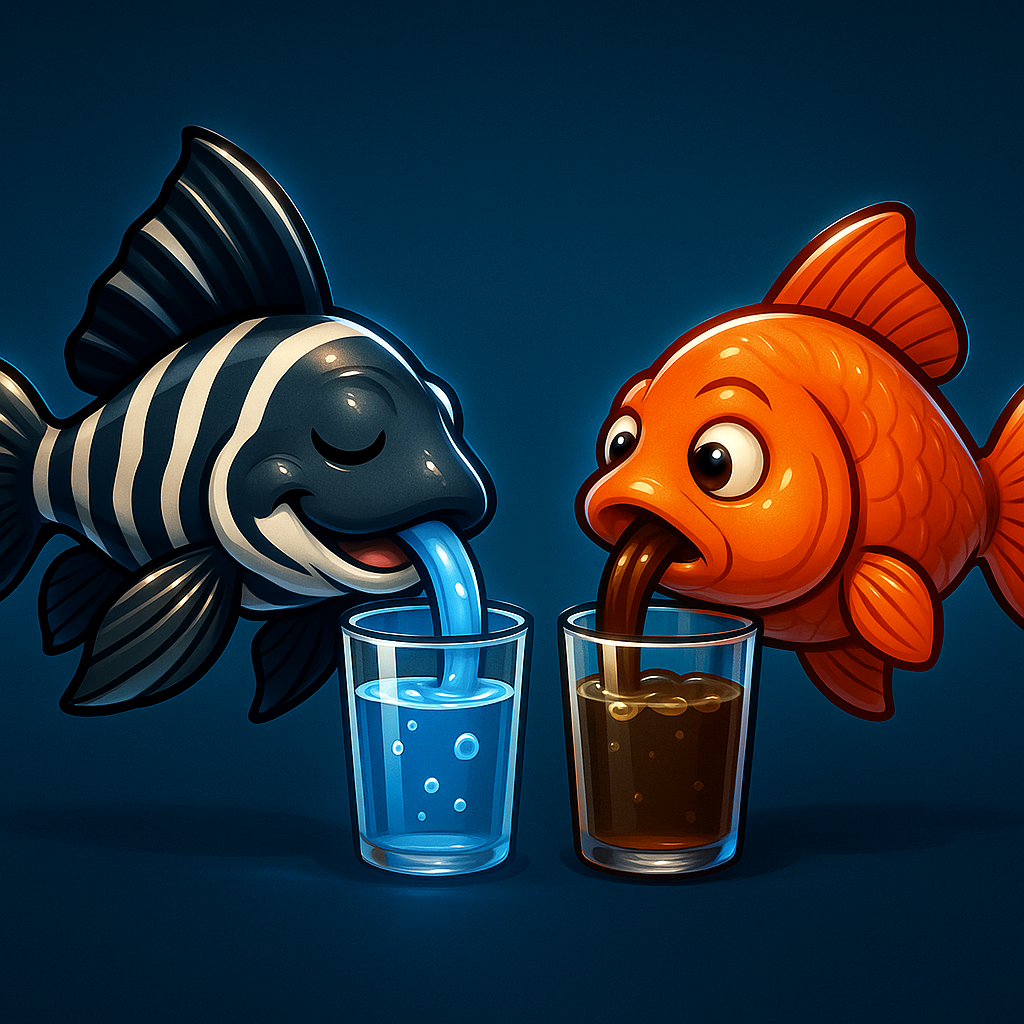Does My Fish Need Special Water Parameters or Temperature?
💧❓ Does My Fish Need Special Water Parameters or Temperature?
Every fish species has its own specific water requirements. Meeting these needs is essential for keeping them healthy and stress-free.
🌡️ Temperature
- Fish are ectothermic (cold-blooded), so water temperature directly affects metabolism and lifespan.
- Tropical freshwater fish (like tetras, cichlids, plecos) generally need 74–80°F (23–27°C).
- Goldfish and temperate species prefer 65–72°F (18–22°C).
- ✅ Use a reliable aquarium heater and thermometer to keep temperatures stable.
⚖️ pH Balance
- Different fish thrive in different pH ranges.
- Example:
- Amazonian species (discus, cardinal tetras, plecos) prefer slightly acidic water (pH 6.0–7.0).
- African cichlids from rift lakes like Malawi or Tanganyika need alkaline water (pH 7.8–8.6).
- ✅ Always test your water before adding fish to ensure it matches their natural needs.
🧪 Ammonia, Nitrite & Nitrate
- Ammonia and nitrite should always be at 0 ppm — even small amounts are toxic.
- Nitrates should be kept under 40 ppm (ideally lower for sensitive species).
- ✅ Regular water changes, filtration, and cycling are essential.
🧂 Hardness (GH & KH)
- GH (General Hardness): Measures dissolved calcium & magnesium.
- KH (Carbonate Hardness): Buffers pH to keep it stable.
- Example:
- Livebearers (guppies, mollies) thrive in harder water.
- Tetras and corydoras prefer softer water.
📊 TDS (Total Dissolved Solids)
- TDS measures the total concentration of dissolved substances (minerals, salts, organic matter) in water.
- In nature, TDS varies greatly by region:
- Some South American rivers have extremely low TDS, even as low as 2–20 ppm — crystal-clear, mineral-poor waters where delicate species like wild-caught discus and cardinal tetras live.
- Other regions, such as African rift lakes, have very high TDS, reflecting the mineral-rich environment needed for cichlids.
- ✅ Knowing your fish’s origin helps you decide whether RO/DI water, remineralization, or local tap water is best.
🐟 Wild-Caught vs. Captive-Bred Fish
- Many hobbyists like to mix and match fish, water parameters, and wild vs. captive-bred.
- Wild-caught fish usually need water close to their natural habitat to thrive long-term.
- Captive-bred fish, especially after years in aquariums, often adapt well to local tap water.
- ✅ Always research whether your fish are wild or captive-bred before setting up their tank.
🌱 Why It Matters
- Wrong parameters = stressed fish, aggression, and disease.
- Proper water chemistry = healthy fish, better colors, natural behavior.
📝 Final Tip
Not all aquariums are the same — what works for one setup may not work for another. Always research your fish before buying them — not just because they look cool, but because you’re responsible for their long-term care.

Impulsada por Lightspeed
Mostrar precios en:USD